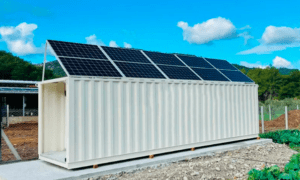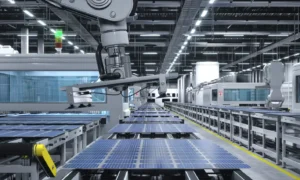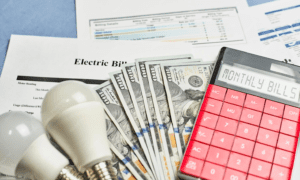The growing adoption of home solar products has triggered a major shift in the way households consume energy. In many areas, rising energy prices, environmental concerns, and advances in solar technology have made solar a viable and attractive solution for homeowners. In this article, we explore the economic impact of these products, including potential savings, job creation, and broader impacts on energy independence. We also analyze how solar products for the home can contribute to the long-term economic sustainability and energy resiliency of households around the world.
Save Money with solar products for home
One of the most immediate economic benefits of home solar products is a significant reduction in energy costs. Households can significantly reduce their reliance on traditional energy sources, thereby reducing their monthly electricity bills. Over time, the initial investment in solar products will be recouped by savings on energy bills, with many households receiving a full return on their investment within 5 to 7 years.
Solar energy can bring significant savings for homeowners in areas with high electricity costs. In addition, the initial cost of installation becomes even cheaper in areas where governments offer subsidies, tax incentives, and rebates. As the cost of solar technology continues to fall, more and more homeowners are now able to adopt solar products in their homes, further reducing their household energy bills.
Solar products for home create jobs and boost economic growth.
The popularity of home solar products has also stimulated economic growth, creating jobs in multiple industries. From the manufacture of solar panels to the installation, maintenance and financing of residential solar projects, the solar industry provides a wide range of employment opportunities.
As demand for solar products continues to grow, businesses involved in these industries, such as solar panel manufacturers, installers and energy consultants, will benefit from expanded business activities. This, in turn, boosts local economies, especially in areas where there is significant investment in renewable energy. Jobs created in the renewable energy industry also help diversify economies away from traditional industries such as fossil fuels, which are vulnerable to price fluctuations and environmental issues.
Achieving Energy Independence
The impact of home solar products on the energy economy is not limited to energy conservation and job creation but also includes achieving energy independence. In many countries, especially those that rely heavily on imported fossil fuels, energy independence is an important economic and strategic goal. Solar energy allows homeowners to generate their electricity, reducing their dependence on the national grid and imported energy. Home solar products provide a reliable decentralized solution for countries with unstable grids or frequent power outages. Off-grid solar systems enable homeowners to produce energy on their own, thereby improving energy security. This independence not only reduces energy costs for the household but also has national implications, increasing energy stability and reducing pressure on public infrastructure.
Long-term financial sustainability
Investing in home solar products can provide long-term financial sustainability for a household. The savings on energy bills, coupled with the durability of modern solar systems, ensure that homeowners will continue to benefit from solar energy for many years. The average lifespan of a solar panel is 25 to 30 years, making it a lasting investment that can provide financial benefits long into the future.
In addition to cost savings, solar panels can also increase the resale value of a property. Homebuyers are increasingly looking for homes equipped with energy-saving features such as solar systems. As a result, homes equipped with home solar products are more attractive in the real estate market, providing additional financial benefits to sellers. The long-term financial returns from solar energy, both in terms of operating cost savings and asset appreciation, make it an ideal investment for homeowners seeking financial stability.
Role in climate change mitigation
In addition to the direct financial benefits, solar products for home play an important role in mitigating the economic impacts of climate change. As fossil fuels become increasingly scarce and expensive, energy costs are expected to rise, placing additional financial pressure on households, especially in developing countries. By switching to renewable energy, homeowners can be protected from the volatility of global energy markets.
In addition, the environmental advantages of solar power generation help address climate-related risks, providing long-term economic benefits. By investing in solar technology, homeowners help reduce the carbon footprint of the energy sector, saving long-term health and environmental costs. While not immediate, these benefits help improve the overall economic resilience of individual households and the economy as a whole.
Overall Economic Impact on Homes
The economic impact of home solar products is far-reaching, affecting everything from household budgets to national economies. With rising energy costs, climate concerns, and technological advances, more homeowners are turning to solar as a long-term solution. By reducing energy costs, creating jobs, promoting energy independence, and fostering sustainable development, solar products have the potential to revolutionize the way we think about energy consumption and financial sustainability. As technology continues to improve and costs fall, the economic benefits of solar products will only increase, making them an important part of the future energy landscape.



































